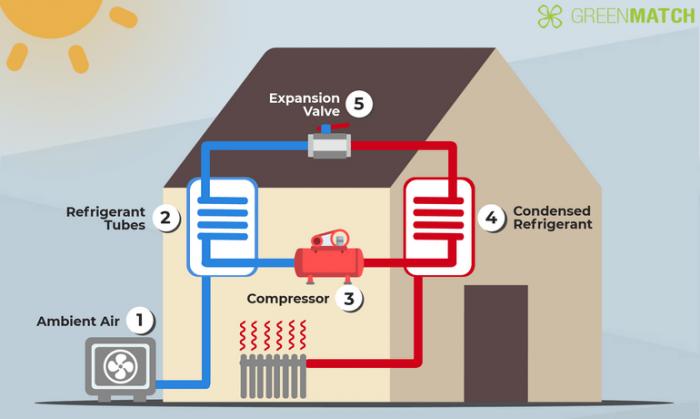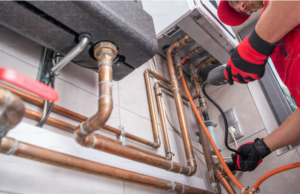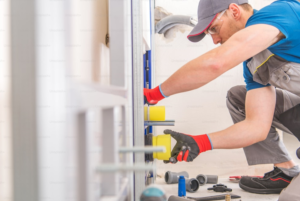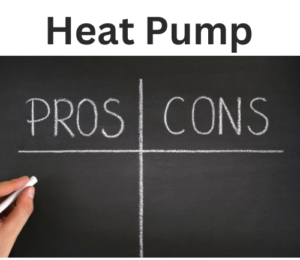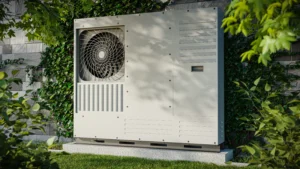For a heat pump system, regular maintenance is essential to ensure its efficient operation, prolong its lifespan, and avoid unexpected breakdowns. Here’s a breakdown of the typical maintenance tasks for a heat pump:
- Air Filters:
- Frequency: Check once a month during peak usage seasons. Depending on the environment (e.g., if you have pets or if there’s a lot of dust), they might need more frequent attention.
- Maintenance: Clean or replace the filters when they get dirty. A clogged filter can reduce the system’s efficiency and strain the equipment.
- Outdoor Unit:
- Frequency: Check periodically, especially after storms or windy days.
- Maintenance: Keep the area around the outdoor unit free of leaves, grass, and other debris. Ensure there’s at least 24 inches of clear space on all sides for proper airflow. In winter, remove snow and ice to prevent blockages.
- Coils & Fins:
- Frequency: Annually.
- Maintenance: Clean the evaporator and condenser coils. Dirty coils reduce the system’s ability to transfer heat. Additionally, straighten any bent fins with a “fin comb” to maintain good airflow.
- Drain Lines:
- Frequency: At least annually.
- Maintenance: Check the condensate pan and drain line for clogs. If the line is blocked, the pan can overflow, causing water damage.
- Ducts:
- Frequency: Every few years, depending on conditions.
- Maintenance: Inspect for leaks and seal them. Consider having your ducts professionally cleaned if there’s significant buildup of dust or contaminants.
- Refrigerant Level:
- Frequency: Annually or if you notice decreased performance.
- Maintenance: Have a professional check the refrigerant level. Too much or too little refrigerant will reduce the system’s efficiency and performance.
- Thermostat:
- Frequency: As needed.
- Maintenance: Ensure it’s working correctly and accurately reading room temperatures. If you have an older thermostat, consider upgrading to a programmable or smart model to improve efficiency.
- Electrical Components:
- Frequency: Annually.
- Maintenance: Have a professional inspect the electrical connections, capacitors, relays, and other components to ensure they’re in good condition.
- Lubrication:
- Frequency: Annually.
- Maintenance: Some heat pump systems have components that require lubrication to prevent friction, which can lead to wear and tear.
- System Operation:
- Frequency: Begin and end of heating and cooling seasons.
- Maintenance: Test the system to ensure it’s heating and cooling correctly. Listen for unusual noises, check for unusual smells, and pay attention to any unexpected behaviors.
Professional Maintenance:
- While many of the above tasks can be performed by homeowners, it’s beneficial to have a professional HVAC technician perform an annual service. They’ll have the expertise and tools to diagnose and address potential issues before they become significant problems.
Remember, regular maintenance not only ensures efficient operation but can also extend the lifespan of your heat pump, providing long-term savings. Always refer to your heat pump’s manufacturer’s recommendations for any specific maintenance guidelines.

